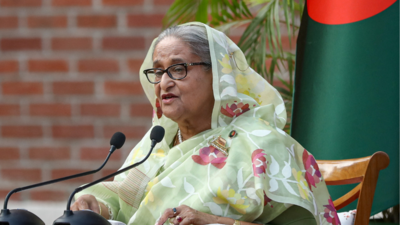[ad_1]

The Bangladesh Chhatra League (BCL), the student wing of former Prime Minister Sheikh Hasina‘s Awami League (AL), held influence in Bangladesh for over 15 years. However, following a student-led movement in August that led to Hasina’s ousting and subsequent exile, BCL members now find themselves in hiding, facing actions taken by the interim government.
A report by Al Jazeera states that over 50,000 BCL affiliates are struggling to continue their tertiary education. On October 23, the Bangladeshi interim government led by Muhammad Yunus banned BCL, labelling it a “terrorist organisation.”
The home ministry cited BCL’s history of violence, harassment, and exploitation of public resources over the past 15 years.
An undergraduate student of applied chemistry told Al Jazeera, “Not long ago, I was a voice of authority here. Now, I am running around like a fugitive with no probable future.” This sentiment reflects the struggles many BCL affiliates are experiencing.
The unrest began in July when students protested against a controversial reservation system in government jobs, which they claimed favored supporters of the ruling party. Although the top court abolished the quota, the protests escalated, calling for the removal of Hasina’s government due to alleged human rights violations.
Protesters stormed government buildings, including Hasina’s residence on August 5, forcing her to flee the country. Violence continued even after her departure, with Awami League members and students becoming targets. Many went into hiding or were detained.
Shahreen Ariana and Saikat Raihan, BCL leaders from Rajshahi University, were arrested on October 18 on alleged “forged charges,” as reported by their families. Violence against Awami League-affiliated students spread, with incidents like the beating death of Shamim Ahmed and the mob killing of Masud.
The interim government declared BCL banned under the Anti-Terrorism Act 2009, effective October 23. The law was originally enacted by Hasina’s administration.
For over a decade, BCL dominated campuses, while opposition student wings such as the Chhatra Dal and Islami Chhatra Shibir faced significant challenges.
The Yunus government has since lifted the ban on Shibir, allowing opposition student groups to regain control of campuses.
[ad_2]
Source link







